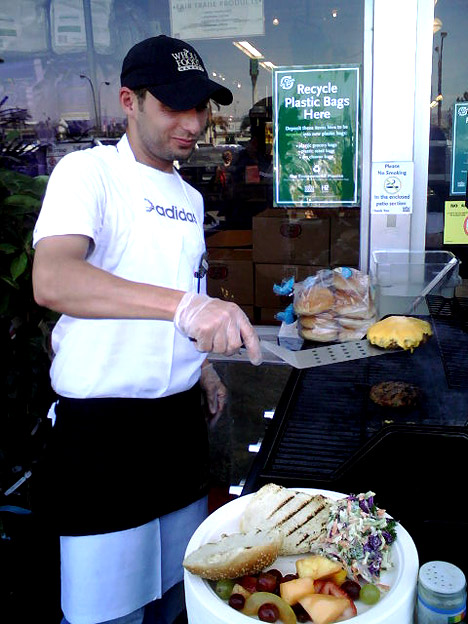As I’ve written before, I’m a sucker for food carts. On the recommendation of barfblog friend Carl, I’ve sampled taco truck fare in LA (A+). I’ve also had breakfast and fish and chips in Wales from a cart (B- and A respectively) and most recently grabbed a brat outside a Raleigh Home Depot (B).
According to a press release from Alamance County (NC), illegal, uninspected mobile and seasonal vendors are increasing.
As activities involving food and fun gain popularity during the summer months, the Alamance County Health Department’s Environmental Health Division has also seen an increase in the number of food stands operating illegally in the county this year. These food stands, usually set up along roadsides or in parking lots, can pose serious health risks and take customers away from legitimate businesses.
(I love that fun and summer leads to illegal activities).
Charlotte News 14 cites Carl Carroll, Director of Environmental Health for the Alamance Health Department as saying that his county has had to shut about a dozen food stands because of such complaints, one within a few blocks of his office.
"I think a lot of times folks don’t realize there are regulations and they do need to be permitted. It was just two guys, just trying to make some money and they were just set up in a parking lot, cooking fish," said Carroll.
North Carolina regs require permitting for food carts (or parking lot fish stands). A condition of permitting usually includes an inspection of the cart and the process.
With complex foods (other than just reheating cooked meats) comes complicated (and potentially risky) preparation and handling steps. Multiple raw ingredients need to be kept at the right temperature, operators have to avoid cross-contamination and, keep bacteria and viruses off of their hands. All within the confines of a cart or trailer. It can be yummy, but making the meals safely is a tricky activity.
Operators must know (and care) about the risks associated with the products they sell. While health inspectors and permitting are part of the solution, but a good street vendor manages the risks before the inspector points them out.
